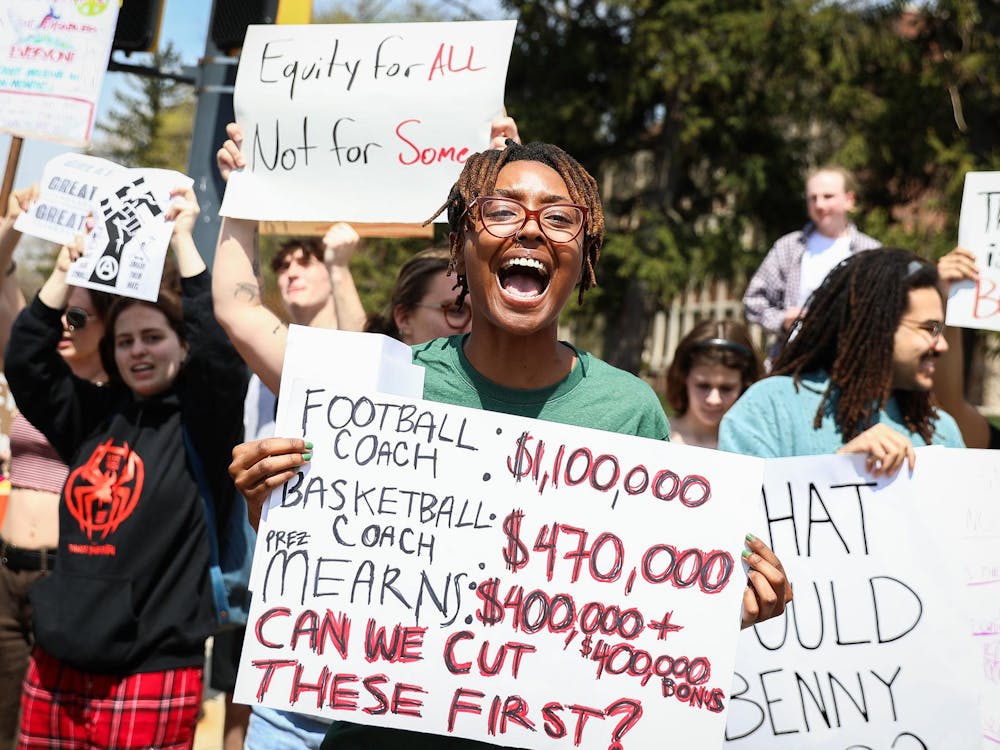For Madeline May, it’s not worth it to speak out about her political beliefs on campus.
May, a senior telecommunications major, feels she will automatically be stereotyped and dismissed because of her conservative leanings.
“I don’t try to make my voice heard, it’s not worth it,” May said. “It’s the minority opinion on campus, so we don’t publicize our opinion because it’s too divisive.”
Of course, that’s not true for every Republican. But that doesn't mean it's easy for them to speak out.
At most colleges, a liberal view is the norm, Matthew Woessner, a political science professor at Penn State University, told the Daily News. Conservative beliefs are considered a deviation.
This makes it harder for Republican students to speak out and have their voice heard on campus for fear of being labeled as racist or intolerant, Woessner said.
May experienced this during her first semester of college. In her COMM 210 class, she said her clearly liberal professor would argue with her consistently on her beliefs, and as a result, her grades suffered. May said it's all because she said she was a Republican.
“I just learned to not talk about it in a classroom,” May said. “It’s not worth your grade being damaged, not worth people having a bad view of you.”
And historically, faculty have fallen on the left side of the political spectrum, Woessner said. A 2016 survey by Econ Journal Watch found that Democrats outnumbered Republicans 11.5-1.
This can make it harder for conservative students on campus in general, he said. When they try to speak out, they don’t have professors sympathetic to their point of view. Having a mentor to validate their beliefs can make a big difference, Woessner said.
Republicans tend to have the burden of proof, and are the ones who have to show other students that they are not intolerant just because of their political leanings.
“The trick is to have conservative views but be intellectually deep enough to communicate with someone with different beliefs and not come across as unkind and aggressive,” he said. “Be extremely patient when the other side thinks the worst of you and make a point calmly and intellectually.”
In other words, they have to demonstrate to any non-Republican students that they don’t fit in with the negative stereotype.
But on campuses that may not be overly receptive to their beliefs, that’s easier said than done.
At both New York University and University of California Berkeley, conservative speakers coming to campus sparked protests. University officials canceled former senior editor for Breitbart News Milo Yiannopoulos' speech at Cal Berkeley. Additionally, Gavin McInnes, a conservative actor, comedian and co-founder of Vice Media, cut his presentation short at NYU.
And at Ball State, Donald Trump’s election brought liberal rallies and protests to campus. These reactions remained peaceful, and none got out of hand. It was just a group of students standing up for what they believe in.
But Mike Lee, a sophomore criminal justice major, suggested that if Republican students were to do the same thing on campus, he would fear for his safety.
“If I grouped all of us together and plopped us out on campus, we’d be threatened and called racists or bigots,” Lee said.
Lee said when he talks politics with people, they automatically assume he’s wrong. When he tells people he voted for Donald Trump, some call him a racist.
“College is supposed to be about expanding your knowledge,” Lee said. “Why are they scared of my point of view?”





